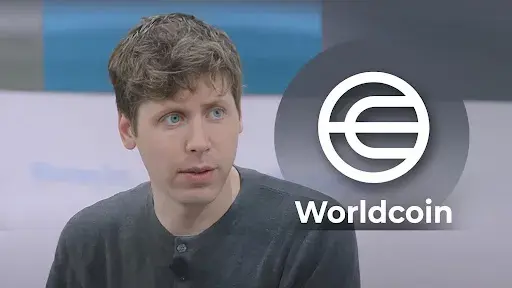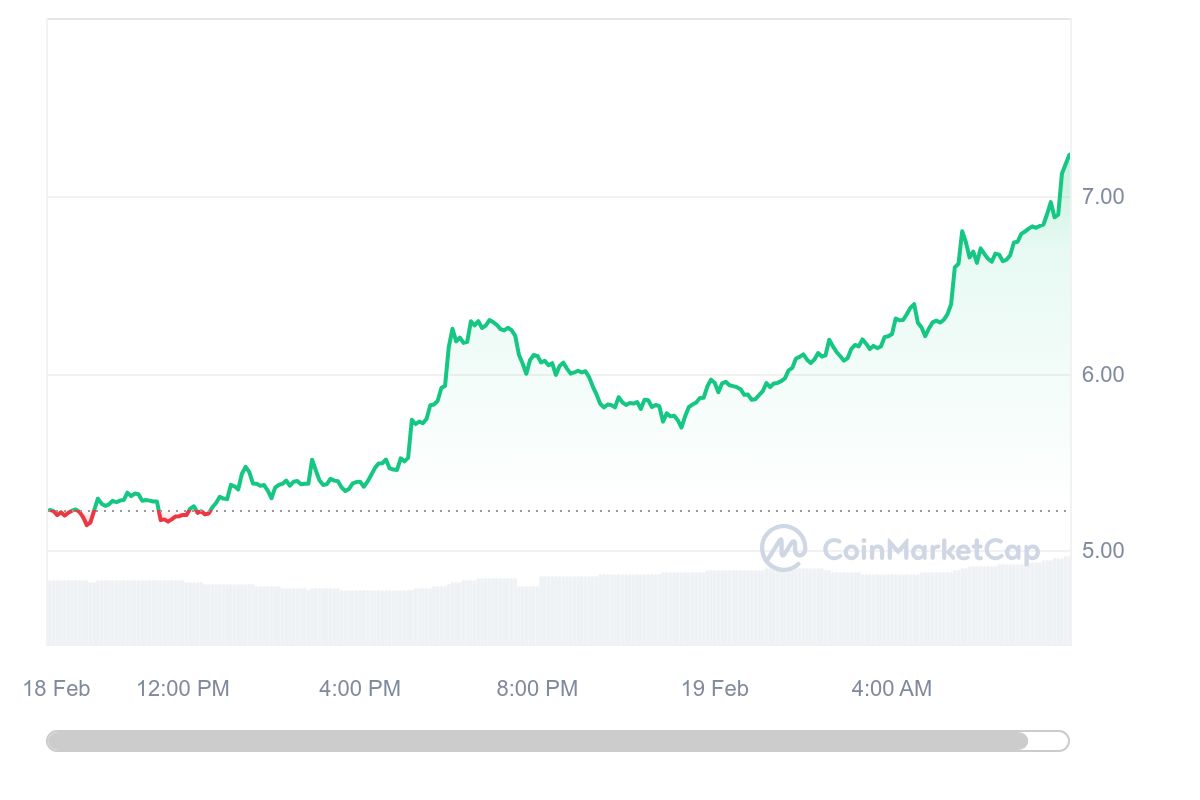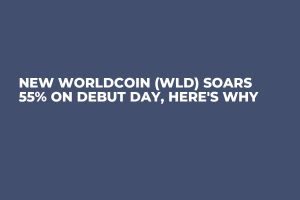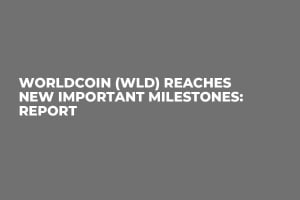
Disclaimer: The opinions expressed by our writers are their own and do not represent the views of U.Today. The financial and market information provided on U.Today is intended for informational purposes only. U.Today is not liable for any financial losses incurred while trading cryptocurrencies. Conduct your own research by contacting financial experts before making any investment decisions. We believe that all content is accurate as of the date of publication, but certain offers mentioned may no longer be available.
What happened
Recently, Worldcoin (WLD), the cryptocurrency associated with Sam Altman's digital identification venture, has experienced a remarkable surge of over 42% in 24 hours, reaching $7.46. This surge is part of a broader upward trend, with the token's value nearly tripling within a week.

This surge coincides with OpenAI's announcement of the text-to-video AI model Sora, known as the "Hollywood Killer" for its lifelike 60-second videos. Additionally, Worldcoin's announcement of its World App crypto wallet passing 1 million daily users contributed to the surge.
The Sora effect was also seen in the broader segment of AI crypto. The total market capitalization of AI cryptocurrencies surged by 8% within 24 hours, reaching $15.8 billion.
The token's market capitalization is now approaching $1 billion, marking a 41% increase. Analyst Ali Martinez predicts a rise to $15 or even $26, representing a gain of up to 250%.
What is Worldcoin
Co-founded by the CEO of OpenAI via Tools for Humanity, Worldcoin, an open-source protocol, aims to democratize global economic access by decentralizing decision-making to its user community. It offers digital identity verification through iris scanning, rewarding users with WLD tokens and aspiring to establish a global universal basic income (UBI) system.
One of the venture's most ambitious applications is in creating systems for fair distribution of limited resources. With World ID, double claiming of resources like bonuses or rewards is prevented, laying the groundwork for universal basic income (UBI) proposals.
Worldcoin launched its token in July 2023, witnessing a 40% surge in 24 hours. With over 2 million users signing up for a World ID, Worldcoin incentivizes users to create digital credentials through iris scanning.
How it works
Worldcoin uses iris scans for identity verification, similar to CLEAR or Apple's Face ID, and also operates as a cryptocurrency. Iris scans generate digital World IDs using zero-knowledge proofs cryptography. An orb device scans irises to create World IDs, offering secure identity verification online without revealing personal data.

These IDs could serve as logins for websites, enhancing privacy by unlinking from personal information. The decentralized protocol will utilize zero-knowledge proofs (ZKPs) to allow users to prove their humanity without revealing sensitive details about their true identity.
Key components:
- World ID: A digital passport for proving uniqueness and humanity online while maintaining privacy.
- Orb: A secure device that verifies uniqueness and humanity through iris scanning.
- WLD token: Globally distributed to individuals, serving both utility and governance purposes.
- World app: A self-custodial app enabling global payments and transfers using digital assets and traditional currencies.
Regulatory issues
In January 2024, the Office of the Privacy Commissioner for Personal Data (PCPD) in Hong Kong launched an investigation into Worldcoin's operations due to concerns over personal data privacy. Executing warrants, the PCPD entered six premises linked to Worldcoin across Hong Kong, citing serious risks to personal data privacy.
The project has faced regulatory scrutiny in various jurisdictions, leading to the suspension of its services in Kenya and a pause in iris scans in India. French, U.K. and German data protection authorities have also initiated investigations into its data practices.
According to Altman, Worldcoin will not offer tokens in the U.S. and other countries with unclear crypto regulations. This reflects a trend of crypto projects avoiding the U.S. amid regulatory ambiguity.
Future prospects
There's growing demand for World ID, which helps differentiate between humans and AI-driven software. Worldcoin aims to bridge the gap between AI and crypto, promising a truly massive use case for crypto in the global economy.
In an interview to Financial Times, Altman acknowledged the skepticism surrounding eye-scanning technology, admitting its "clear ick factor." However, he challenges critics by questioning why governments have not taken the initiative in such endeavors.
Worldcoin recently secured $115 million in funding, with a valuation reaching $3 billion in the previous year. It originally intended to issue a total of 10 billion tokens, allocating 80% to users, 10% to the company's investors and the remaining 10% to a foundation. The token has a total supply of 143 million, with 43 million distributed to Worldcoin app users through an airdrop.




 Dan Burgin
Dan Burgin Vladislav Sopov
Vladislav Sopov